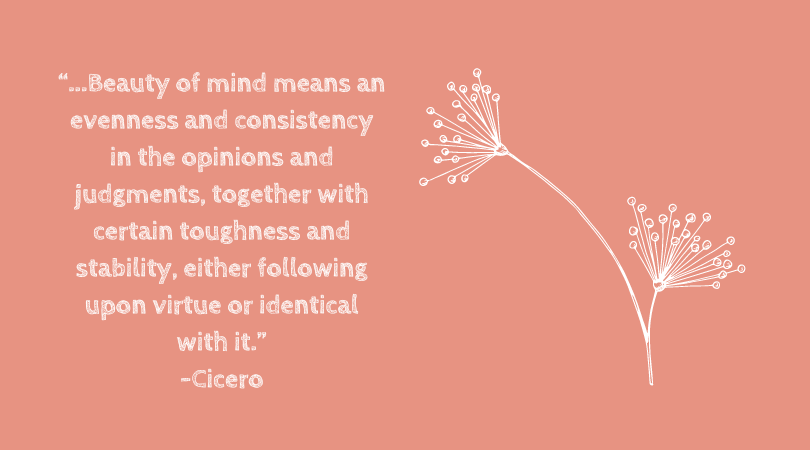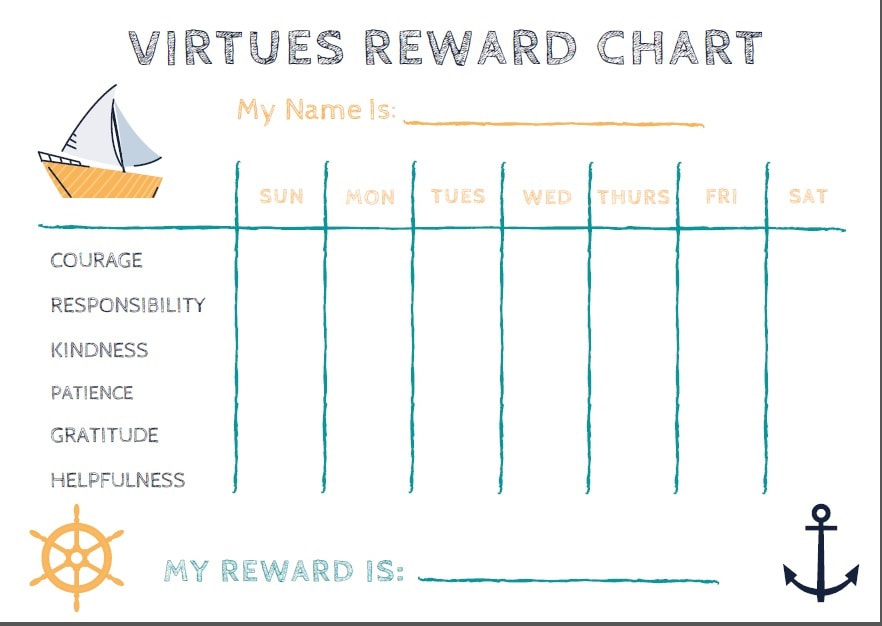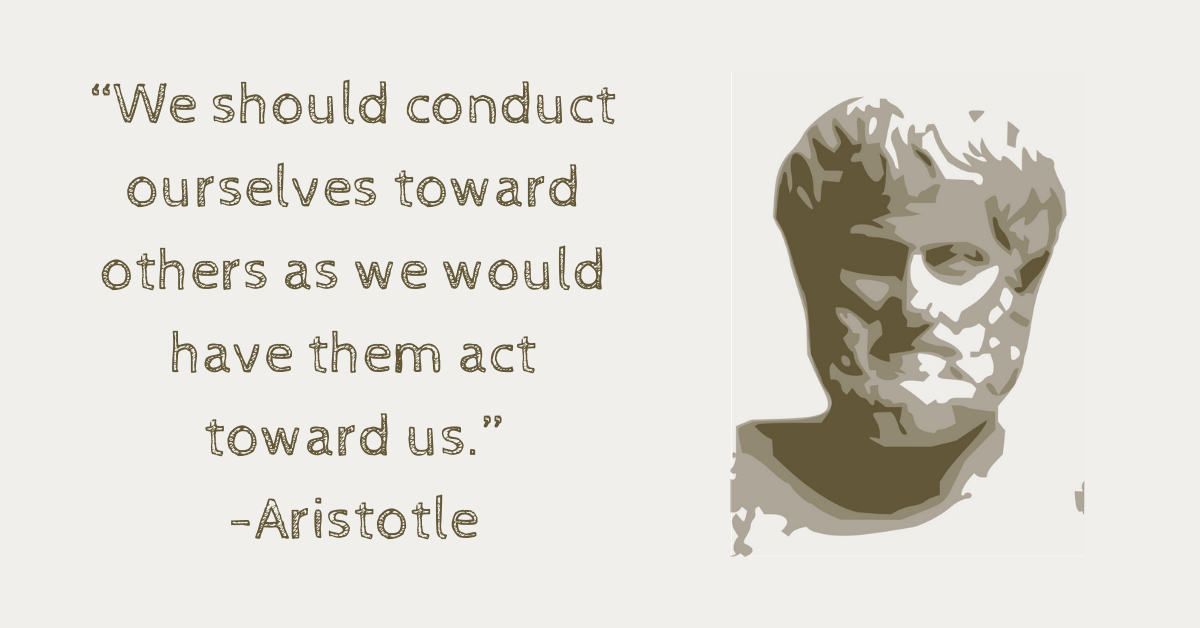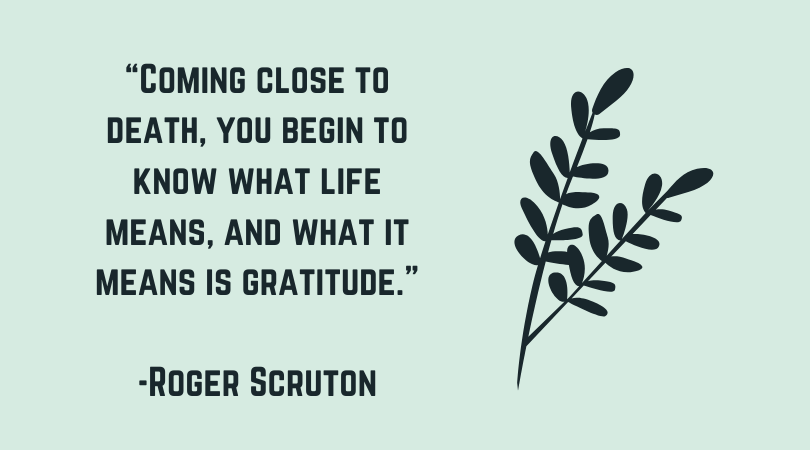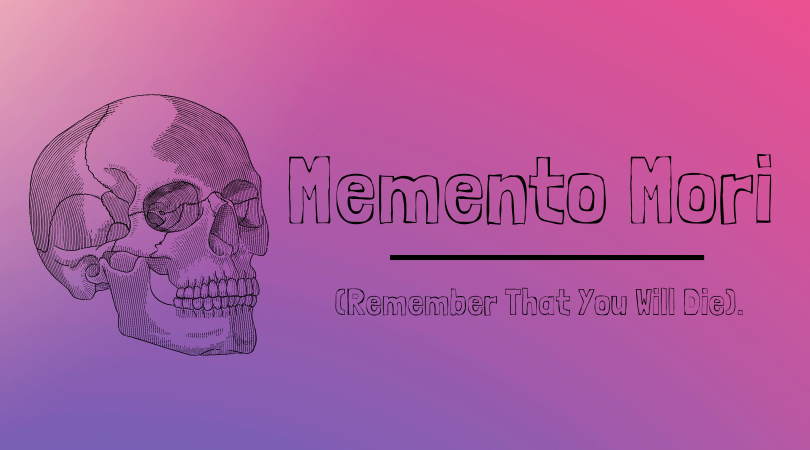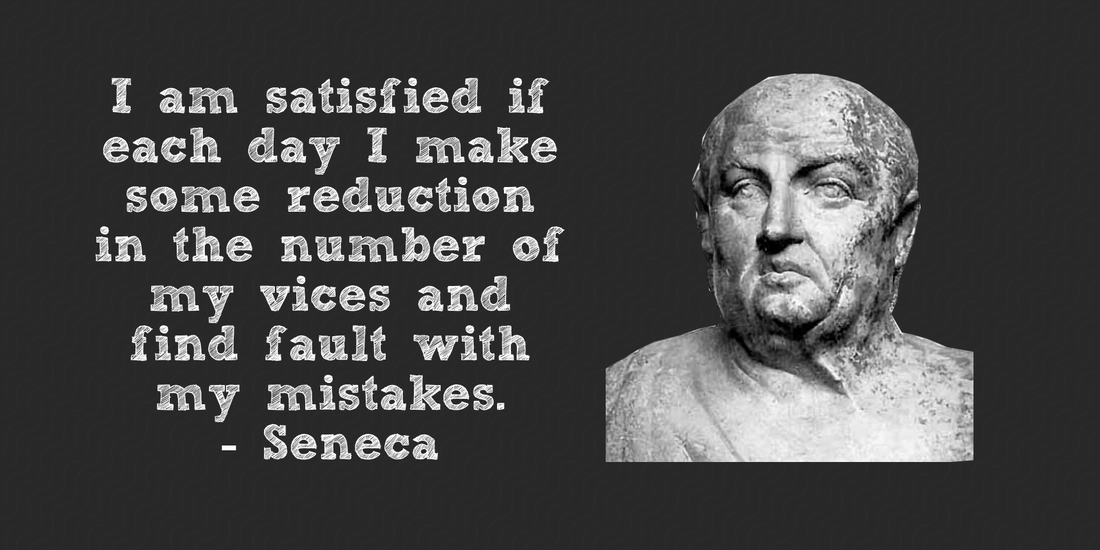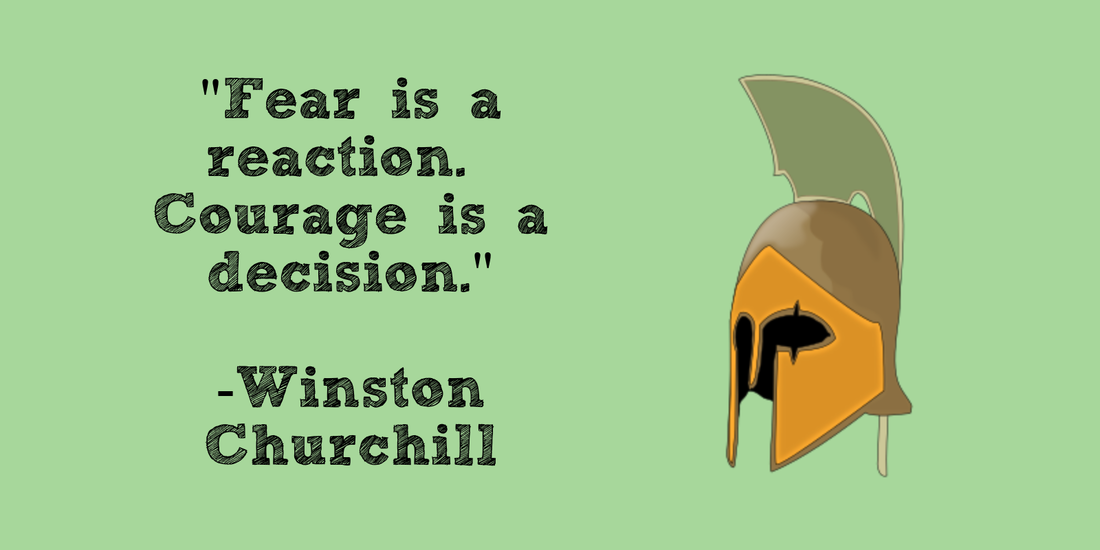The first part of the talk will be looking at what is moral beauty. We'll start with the ancient Stoics and we will fast forward about 1600 years to the Earl of Shaftesbury in England. Then we'll come up to contemporary times. How can we approach moral beauty? What does it mean for us today? And then the second segment of the talk will be some suggestions for how we can cultivate moral beauty today and make our lives more beautiful.
|
This guest post is a transcription of my friend Brittany Polat's talk at Stoicon 2023. It was previously published on Brittany's Substack, Stoicism for Humans, and includes the themes of virtue, moral progress, and Shaftesbury’s views on beauty and nature. I hope you find this very inspirational topic useful in your own life.
The first part of the talk will be looking at what is moral beauty. We'll start with the ancient Stoics and we will fast forward about 1600 years to the Earl of Shaftesbury in England. Then we'll come up to contemporary times. How can we approach moral beauty? What does it mean for us today? And then the second segment of the talk will be some suggestions for how we can cultivate moral beauty today and make our lives more beautiful.
2 Comments
In June I participated in the Power To Care panel at Stoicon X Women: Practical Paths to Flourishing 2021. If you missed it, the whole event is available on YouTube. My panel begins at 1:28:13
During the conference, I mentioned that I use a virtues reward chart for my 6 year old son at home. Since there was a lot of interest in the chart, I created a free printable version for other parents to download, pictured above. You can download and print the virtues reward chart for kids PDF here:
Brendan Malone, of Left Foot Media, a father of 5, gives wonderful tips on how to teach and model virtue to our children at home. One way to do this is to create an intentional family culture based on our specific moral values, that will act as a counterweight to the negative aspects of the culture that we find ourselves in.
How do we teach our children virtue? This issue was being discussed in a similar context back as far as the Enlightenment by thinkers like Locke and Rousseau. Rousseau thought that a parent's primary role is to be a buffer between their child and culture, rather than simply being an agent of the dominant culture. Rousseau described the insular and affectionate family that educated its own children as “the best counterpoison for bad morals.” Support Common Sense Ethics to see even more videos like this: https://www.patreon.com/commonsenseet... https://ko-fi.com/commonsenseethics Brendan's Channels: https://www.youtube.com/channel/UCdou... https://www.youtube.com/channel/UCp0w... Really you ask? Is it possible to tell right from wrong and to easily figure out how best to treat other people in every situation? Yes it is, and I'm about to show you how.
It turns out that there are 3 important rules we can always use to do right by others: the Silver Rule, the Golden Rule and the Platinum Rule. These 3 rules are applicable regardless of our politics, religion or culture. These moral rules also have broad support across cultures and throughout history. Let's discuss the Silver, Golden, and Platinum Rules, and how they can easily be applied to tell right from wrong when it comes to our choices and actions. The Socratic Method is a way of thinking which helps you to become more open-minded and less afraid of being wrong. Socrates felt that we are more ignorant than not, so to achieve excellence, we can’t be satisfied with what we already know, we should keep striving to gain knowledge and get closer to the truth.
Changing your mind is more Socratic than dogmatically clinging to your beliefs throughout life. But it's not always easy to do, and that is what I discuss with my guest Justin Vacula. We cover the important point that free speech - even controversial free speech - is essential for true critical thinking and for Socratic Dialog and therefore must be protected. Without free speech, we have what happened to Socrates himself - he was imprisoned for speaking freely and committed suicide. Human knowledge cannot be advanced without open discourse, without which, we remain in ignorance. Support the channel to see even more videos like this: https://ko-fi.com/commonsenseethics Jane Pauw, a 60-year-old pastor in Seattle, fell ill with coronavirus in March 2020. Pauw spoke of coronavirus as a darkness with a silver lining. Like Pauw, my family and I became sick with the coronavirus, and it was the most difficult thing that I have ever been through. (You can hear the story of my illness and recovery on Stoic Solutions Podcast, plus practical advice for if you get sick on my parenting blog.) Like Pauw, I also lived in a state of darkness as our illness and recovery dragged on and on.
In Alchemy, this state of darkness or blackness is called Nigredo. It is a stage of development which symbolizes the dark night of the soul, the shadow, all of our fears and failures. But Nigredo also symbolizes the fecundity of the earth, the black soil's potential for growth and rebirth, and opportunity waiting to be seized. Going through the darkness, we become more conscious of ourselves and the world around us. Negative experiences contain tremendous potential for growth. They shake us out of our comfort zone, forcing us to confront out deepest fears so that we can emerge stronger and re-energized and face our future with more awareness and gratitude. Here is what surviving coronavirus has taught me about life and death: When we are children, we can't even imagine the end of our lives. As we grow up, we are often so busy with daily tasks that we forget to notice how quickly life is passing by. We don't allow ourselves to think much about death, because we imagine that we a still have time.
But the truth is that life is short. None of us knows how much time we have. In Plato's Phaedo, he introduces the idea that philosophy is "about nothing else but dying and being dead". The Stoics were also fond of this discipline, and Seneca's letters are full of injunctions to meditate on death. Thinking about death need not be negative. On the contrary, it may inspire us to live betters lives in the here and now. According to Bronnie Ware, a hospice nurse from Australia, many of her dying patients expressed regrets over how their lives had played out. I've gone on to list 7 of these regrets below. Meditating on common regrets of the dying can help us to put our own lives into perspective before our time is up.
I just celebrated my birthday, so I thought it would be a fun change of pace to write a post about what I have learned in almost 4 decades of life.
I don't want this to read as a list of regrets. Really a more positive take is that I'm hoping these 38 life lessons can help others! 1. Don't Waste So Much Time Speaking of regrets, this is my biggest one. I wish I had spent more time on languages, musical instruments, and generally applying myself than on wasting time with friends, watching TV, etc. Life is short. Use your time wisely. You'll have less time when you start working, and even less for quite a while if you have children! Welcome Holly Hamilton-Bleakley, a philosophy professor and mother of six, to my YouTube channel! Holly is the author of the wonderful blog, Philosophy For Parents.
Here she shares wisdom gleaned from 20 years of motherhood and her extensive knowledge of philosophy. We discuss:
You may also like: Creating Your Ideal Family Culture Fearless Parent: How to Raise Kids Using Stoic Philosophy Apply the Antidote: Teaching Kids to Deal With Problems In an interview with the World Ethical Data Forum, Julian Assange warned that the generation being born now is the last to be free. The message is quite disturbing. After all, it does seem as though we are headed that way, that long shadows are falling. "Look back over the past with its changing empires that rose and fell, and you can forsee the future too," Marcus Aureluis declares. Is this period of time similar to the fall of Rome? Maybe just the end of the Republic?
Anxiety seems to be at the root of the modern condition. Besides the stress that we deal with in our private lives, there are always political and geopolitical concerns (like the above) that stress us as well. Given all of this, I actually don't think that anxiety is by any means an irrational response. It's only when our response is disproportionate to the threat or when anxiety starts to take over our lives that it really becomes a problem. I can honestly say that with each new child that we have added to our family, my own anxiety has increased. After all, I have my family's wellbeing to look after, not just my own. Courage however, is a decision. It's how we respond to anxiety provoking thoughts that we have control over, not the external situation. Let me share with you the 2 best techniques that I use to overcome anxiety. |
Don't Miss A Post!Sign up to receive updates and special announcements! Thank You For Subscribing to Common Sense Ethics!You have successfully joined my email list. About Me:Thank you for your interest in Common Sense Ethics! I'm Leah, a librarian and freelance editor with a background in history and philosophy.
Most Popular Blog Posts:3 Unpopular (But Likely Correct) Opinions According to Cicero Download My Stoic Printables For Tough Days:
Watch Common Sense Ethics On YouTube:
|
||||||

